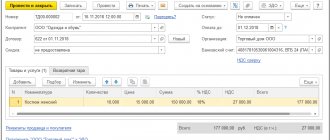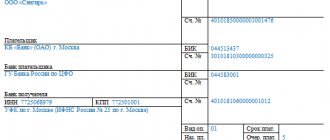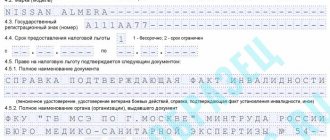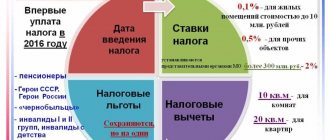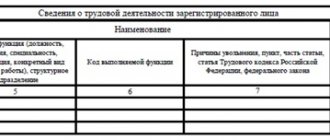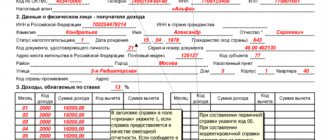The need for due diligence
Exercising due diligence when choosing a counterparty is a category that is primarily of interest to tax authorities, who identify situations that entail the taxpayer receiving an unjustified tax benefit.
These points have acquired particular significance in connection with monitoring the reality of transactions taken into account when calculating 2 main taxes: profit and VAT. Of lesser (but also growing) interest in due diligence are:
- banks that are not only obliged to control certain transactions of their clients (Law “On Combating the Legalization (Laundering) of Income..." dated August 7, 2001 No. 115-FZ), but also interested in at least a stable financial position of persons who received a loan from the bank;
- business owners who want to run it with minimal losses (risks of buying and selling low-quality goods, late deliveries, non-receipt of payments, impossibility of recovering damages).
Why is due diligence one of the key issues directly for the taxpayer himself? Because entrepreneurial activity is carried out at your own peril and risk. That is, the negative consequences arising from the wrong choice of counterparty also become a taxpayer’s risk. And if the tax authority proves that the transactions were not real (that is, the transaction was fictitious), then additional tax charges will be inevitable.
The reality of the deal is the new reality.
Art. 54.1 of the Tax Code of the Russian Federation puts above all arguments the parameter of the reality of the transaction. Judicial practice in 2021 continues to follow the same path. When considering transactions, courts first look at evidence of its implementation. Tax authorities were recommended to do the same, which is what they do, although not always.
- Companies are interdependent
- They have all the signs of unreliability.
It would seem that it is clear that transactions between such counterparties cannot be real. But, if the transaction is really real and the taxpayer has all the evidence, then he can win in court. Proof of this is the position of many courts.
Due diligence moves to 2nd place, but no one has canceled it and it still helps taxpayers
minimize:
- Banking risks
- Tax risks
- Entrepreneurial risks.
Read my article:
Regulations for verification of counterparties. Why should you check your counterparty?
So how do you prove due diligence?
Prudence: legal basis
The concept of due diligence is not legally defined anywhere.
Read more about the current regulation of the concept of “tax benefit” in this article.
However, there are criteria developed by the Federal Tax Service of Russia (order dated May 30, 2007 No. MM-3-06/333), according to which the most likely candidates for an on-site tax audit are selected from among taxpayers. Among these criteria there is also such as conducting activities with a high level of tax risk, the description of which (clause 12 of Appendix 2 to the Federal Tax Service order No. MM-3-06/333) contains a list of characteristics that form the basis for assessing counterparties in terms of possible risks working with them.
For a complete list of criteria for selecting taxpayers for audit, see here.
Additional information about the signs of dubious counterparties can be found in the letters:
- Ministry of Finance of Russia dated December 17, 2014 No. 03-02-07/1/65228 - regarding the characteristics of one-day companies;
- Federal Tax Service of Russia dated February 11, 2010 No. 3-7-07/84 - about information that a taxpayer can request from its counterparties, and measures taken by the tax service to inform about persons unreliable for interacting with them;
- Federal Tax Service of Russia dated October 17, 2012 No. AS-4-2/17710 and dated March 16, 2015 No. ED-4-2/4124 - on available official sources of data on legal entities and individual entrepreneurs, as well as on the qualitative assessment of information reflected in the Unified State Register of Legal Entities;
- Federal Tax Service of Russia dated May 12, 2017 No. AS-4-2/8872 - on the study of certain characteristics of a counterparty when assessing tax risks.
However, formal adherence to the provisions of these documents does not always guarantee the taxpayer the absence of claims from the tax authorities. They are increasingly successfully proving the unreality of dubious business transactions reflected in the accounting, including using arguments that complement the criteria developed by the Federal Tax Service of Russia. And increasingly, the point of view of the Federal Tax Service is supported by judges.
Judicial practice: signs of lack of diligence
The approach to assessing the due diligence of a taxpayer has been formulated by the Supreme Court. You can learn more about it from the Review from ConsultantPlus. Trial access to the system can be obtained for free.
As for district courts, the following arguments are based on the court’s recognition of the counterparty as not meeting the criteria of a person actually conducting business:
- Lack of the resources necessary for this (assets, personnel), payment of taxes in the minimum possible amount or in incomplete amount (resolutions of the Arbitration Courts of the Moscow District dated 05.30.2017 No. F05-7043/2017 in case No. A40-181608/2016, dated 30.05 .2017 No. F05-6970/2017 in case No. A40-208019/2016, dated 05.15.2017 No. F05-5962/2017 in case No. A40-74889/2016, Far Eastern District dated 08.14.2017 No. F03-2718/2017 in case No. A51-27634/2016).
To learn how the volume of the tax burden is determined and what its values are considered to be underestimated, read the article “Calculation of the tax burden in 2021 - 2020 (formula)” .
- The presence of a mass registration address, the absence of expenses characteristic of ongoing business activities, the disproportion of cash flows on accounts and the amount of taxes paid (resolution of the Arbitration Court of the Moscow District dated May 29, 2017 No. F05-6622/2017 in case No. A40-119724/2016).
- The presence of a predominantly transit nature of the movement of funds across accounts, nominal property status with a significant variety of activities declared for implementation, lack of consistency in receipts and expenditures of money (resolutions of the Arbitration Courts of the Moscow District dated May 25, 2017 No. F05-6702/2017 in case No. A40- 166522/2016, Volga-Vyatka District dated July 17, 2017 No. F01-2731/2017 in case No. A43-21051/2016).
- Lack of personnel, necessary assets (office, warehouses, equipment, transport, including leased ones) and documents confirming the provision of delivery services, presence of signs of one-day existence of counterparties, presence of a transit nature of cash flows, filing of tax reports indicating the minimum data in it, distortion of information when issuing permits to carry out activities (resolutions of the Arbitration Courts of the Moscow District dated 05.19.2017 No. F05-6215/2017 in case No. A41-66000/2016, Far Eastern District dated 08.09.2017 No. F03-2797/2017 on case No. A73-9509/2016, Northwestern District dated August 10, 2017 No. F07-5611/2017 in case No. A66-5287/2016).
- The presence of one-day companies among the counterparties, non-payment of taxes, lack of the necessary labor and property resources necessary to conduct business expenses, the presence of transactions with significant sums of money that are not confirmed by the counterparties (resolutions of the arbitration courts of the Moscow District dated 04.05.2017 No. F05-5426/2017 in the case No. A40-143250/2016, Central District dated 08/03/2017 No. F10-2817/2017 in case No. A09-9845/2016).
The arguments taken into account by the courts indicate that the justification for exercising due diligence should not be limited to asking the counterparty for constituent documents, a copy of the latest statements and an extract from the Unified State Register of Legal Entities. It is also necessary to collect other information about him. For example, check what his business reputation and solvency are, assess the presence of a risk of non-fulfillment of obligations, make sure that he has real resources to actually carry out the activities agreed upon in the relationship and has the right to conduct them.
How to exercise due diligence when choosing a counterparty in 2020-2021
A taxpayer entering into a relationship with another counterparty should check it:
- for legitimacy (presence in the Unified State Register of Legal Entities (USRIP), absence of a mass registration address and a disqualified manager, availability of permits necessary to conduct the relevant activities);
- the reality of the activity being carried out (actual location at the place of registration, the presence of a manager with the necessary powers, physically existing offices and warehouses at the specified addresses, necessary equipment and transport, personnel, a valid current account, the presence of information in the media and the Internet);
- reliability (absence of non-filers, tax evaders, bankrupts, persons involved in legal proceedings in connection with their non-payments or work with one-day companies, availability of recommendations from business partners, duration of activity and maintaining relationships with the same partners ).
When checking, use the services from the Federal Tax Service.
However, you should not be limited to the above, since any additional information (including, for example, correspondence preceding the conclusion of the contract or conducted during its execution, or minutes of a meeting of managers) will serve as confirmation of the reality of the existence of the counterparty and the actual conduct of those activities, the results which the taxpayer will take into account.
It is preferable to have all data received about the counterparty in the form of documents (originals, copies, printouts from websites, screenshots of Internet pages, photographs, emails, advertising materials, audio and video recordings) and store them formed into a file (dossier).
You will find more practical advice on due diligence and verification of counterparties in the Ready-made solution from ConsultantPlus. Get trial access to the system for free and proceed to the material.
Who will be complained about?
Whether tax authorities make claims against one or another party to a transaction is a rather sensitive issue. So, if the counterparty conducts business only on paper - that is, it is a fly-by-night company or there are other signs of dishonesty - claims will be brought against the payer. Because he mainly receives the economic benefit from this state of affairs.
It is very convenient that on the official website of the Federal Tax Service of Russia you can find the following data:
- about the addresses indicated as the location of several legal entities;
- companies whose management includes disqualified persons.
It is well known that fly-by-night companies, as a rule, register at so-called mass addresses. Starting from 2021, the tax secrecy regime has been lifted from some of this information. This greatly simplified the process of “pushing” the counterparty for good faith.
In fact, the basic principle of due diligence is compliance with at least the minimum list of necessary requirements for checking a possible business partner. And if they are not followed, it will most likely be considered a violation.
Justification for choosing a counterparty to the Federal Tax Service: sample
The presence of such a dossier will help you easily justify the choice of a specific counterparty to the Federal Tax Service. The documents present in it will not only make it possible to correctly formulate all the grounds necessary for the argument, but will also serve as an appendix (in copies) to the text of such an explanation.
The justification for choosing a counterparty does not have a specific form. It will need to be drawn up in the form of a regular letter addressed to the Federal Tax Service, on the form used by the taxpayer for such documents. The main text part of it will be devoted to the argument itself. For example, it might look like this:
“Variant LLC showed due diligence when choosing Soyuz LLC as a counterparty, taking actions to obtain:
- copies of the counterparty's constituent documents, its accounting records for the year preceding the year of conclusion of the agreement, tax returns for profit, VAT, property tax for the last 4 reporting periods;
- originals of certificates issued by Soyuz LLC from the Federal Tax Service on the absence of tax arrears and from the bank on the flow of funds on accounts for the last six months;
- copies of documents confirming the authority of the manager and chief accountant;
- extracts from the Unified State Register of Legal Entities, information from the Federal Tax Service website about the absence of disqualified persons in the management of the counterparty and the non-classification of the registration address as a mass one;
- screenshots of Soyuz LLC website pages with a description of the types of work it performs, the technologies used and the personnel involved in them;
- reviews from representatives of Mir LLC and Grad LLC about the quality of work performed for their Soyuz LLC and the fulfillment of warranty obligations;
- protocols of negotiations between the heads of Variant LLC and Soyuz LLC that preceded the conclusion of the agreement;
- photographs of the counterparty’s office, production and warehouse premises taken at the place of its registration.”
Enclosures to such a letter will be copies of the documents listed in it.
Evaluating the collected information
After all information available regarding the counterparty has been collected, it is necessary to analyze it. The risk assessment of a counterparty should be carried out on the basis of a reasonable and comprehensive approach, since even the presence of individual negative signs cannot fully serve as a reason for refusing to cooperate with this partner.
Let's look at which signs are an absolute reason to end a relationship, and which you can turn a blind eye to.
Invalid signs:
- the information provided by the person being verified does not correspond to the information from the Unified State Register of Legal Entities (for example, another executive body, another TIN, address, etc.);
- the upcoming exclusion from the register either due to recognition as an inactive legal entity or as a result of liquidation is sufficient grounds for refusal of further cooperation;
- the person acting as the executive body of the counterparty is included in the list of disqualified persons or is a dummy.
Signs that should be assessed in conjunction with other data:
- the presence of tax arrears can be either short-term or permanent;
- the upcoming reorganization does not always mean the impossibility of concluding transactions, since during this procedure there is always a legal successor;
- the address of mass registration is also not an unambiguous reason for refusing contractual relations, as it may well occur when the organization is located in a business center;
- situations in which the head of the executive body holds similar positions in several companies are also not uncommon, but are not critical.
Answer for the bank about the reasons for choosing a counterparty
The response to a bank requesting information within the framework of the requirements of Law No. 115-FZ will also be similar in content. In addition to justifying the choice of a specific counterparty, it may also be necessary to justify the conditions for concluding a specific transaction.
Since banks face quite serious liability for failure to take measures to combat money laundering, they can rely on any (not just those listed as mandatory) signs that make a transaction suspicious (Methodological recommendations attached to the letter of the Bank of Russia dated July 13, 2005 No. 99-T). For this reason, a request from the bank may be received in relation to any transaction with any of the counterparties and require the most complete documentary justification.
You should not ignore a credit institution’s request for documents. This may become a reason for the bank not to carry out the transaction that has raised doubts (Clause 11, Article 7 of Law No. 115-FZ).
Results
Exercising due diligence is becoming increasingly important for the taxpayer when choosing a counterparty.
He will need to explain his actions, supporting them with documentary justification, not only to the Federal Tax Service, which detects the receipt of an unjustified tax benefit, but also to the bank, which controls the process of legalizing illegally obtained income. You can find more complete information on the topic in ConsultantPlus. Free trial access to the system for 2 days.
Conclusion
The concept of “due diligence” was introduced by the Supreme Arbitration Court of the Russian Federation in 2006. Using it, tax officials tried to hold conscientious taxpayers responsible for failure to fulfill obligations to the budget by their business partners.
After changes are made to the Tax Code of the Russian Federation in 2021, the business purpose and reality of the transaction are first assessed. The parties to the agreement generally are not liable for each other’s tax obligations.
However, it is still necessary to check counterparties before concluding contracts. This will help not only reduce tax risks, but also insure against problems with unscrupulous partners.

